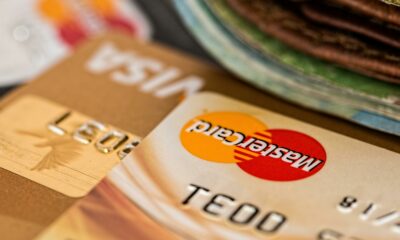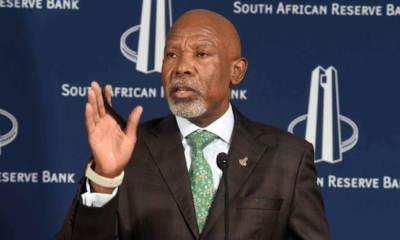Business
Markets Stay Strong Despite War-Driven Oil Shock: Fuel Price Hikes Loom for South Africans

Oil jumps, the Rand dips, and fuel hikes are on the way, but it’s not all bad news
Despite the tremors of conflict between the US, Iran and Israel shaking global oil markets, South Africa’s stock market remains surprisingly resilient. However, the same can’t be said for the price of fuel, with South Africans bracing for a hike at the pumps this week.
It’s been a week of contrasts. As the geopolitical crisis escalated, most notably after the US struck Iranian nuclear facilities and Iran exchanged retaliatory attacks with Israel, Brent crude prices surged from $70 per barrel on June 13 to $77 by June 20. That’s a nearly 10% spike in just seven days.
Add a weakening Rand, which depreciated from R17.77 to R18.07 to the dollar before recovering slightly, and you’ve got a recipe for fuel under-recovery.
Under-recovery means fuel hikes this week
Despite a partial rebound in both the Rand and oil prices toward the weekend, Brent dropping to $66.47 and the Rand strengthening back to R17.78—the damage is already done. According to mid-month figures, petrol (95 ULP) was under-recovered by 52 cents per litre, and diesel by a hefty 83 cents. This means South Africans are almost certainly in for a steep fuel price increase come Wednesday.
In Gauteng, petrol could rise to R21.85 per litre, a sharp climb, but still R1.41 cheaper than it was on July 4 last year, when it hit R23.26 per litre. So, while the increase will sting, it may not push up inflation as much as people fear.
Why? Because inflation is based on year-on-year changes, and since prices are still lower than this time last year, it could actually help ease the current inflation rate further. That could give the Reserve Bank some breathing room before considering any interest rate adjustments.
JSE defies global chaos, posts weekly gains
While fuel woes dominate headlines at home, the Johannesburg Stock Exchange (JSE) is marching to a different beat. Despite local instability within the Government of National Unity and international tension in the Middle East, the All Share Index rose by 0.8% last week, and is now 14% higher than at the start of the year.
Even South Africa’s often-skittish financial sector climbed 3% over the week and is now up 12.1% year-on-year proof that investors are still finding value despite the chaos.
Wall Street hits records amid a contracting US economy
Meanwhile, in the US, markets appear unfazed by a -0.5% contraction in Q1 GDP growth—the first quarterly decline in three years. The S&P 500 hit new record highs, gaining 3.2% over the week and closing 0.52% up on Friday alone.
Even a slowdown in consumer spending didn’t rattle Wall Street, with economists suggesting that early stockpiling ahead of Trump’s tariffs may have skewed recent consumption data. With inflation moderating and unemployment stable, investors are now looking to Friday’s US non-farm payrolls report for clues about future interest rate direction.
What to watch this week: Jobs, cars, and budget balance
This coming week promises several key indicators:
-
US Non-Farm Payrolls on Friday: Expected to show 129,000 new jobs added and unemployment steady at 4.2%. A weaker-than-expected report could push the Fed closer to cutting interest rates.
-
South Africa’s Primary Budget Balance: Out today, with expectations that the deficit has dropped significantly from R64 billion in April to -R18 billion in May, inching toward a surplus.
-
June New Vehicle Sales: Due Tuesday, these will offer fresh insight into consumer confidence and economic activity on the ground.
Locally, political uncertainty continues to weigh on the Rand. The sacking of DA deputy minister Andrew Whitfield and ongoing tensions in the GNU have raised investor concerns about coalition stability. Any further deterioration could impact both the exchange rate and local equities.
A mixed but manageable outlook
Yes, petrol prices are going up. Yes, the Rand took a knock. But in the bigger picture, there’s room for cautious optimism. Global oil prices are already retreating, and fuel inflation may actually soften in the months ahead. Meanwhile, the JSE remains strong, and South Africa’s budget appears to be heading in the right direction.
It’s a reminder that even in turbulent times, not all signals point downward.
Keep your tank topped up, but don’t panic. This might just be a bump in the road, not a full-blown detour.
{Source: IOL}
Follow Joburg ETC on Facebook, Twitter , TikTok and Instagram
For more News in Johannesburg, visit joburgetc.com



























